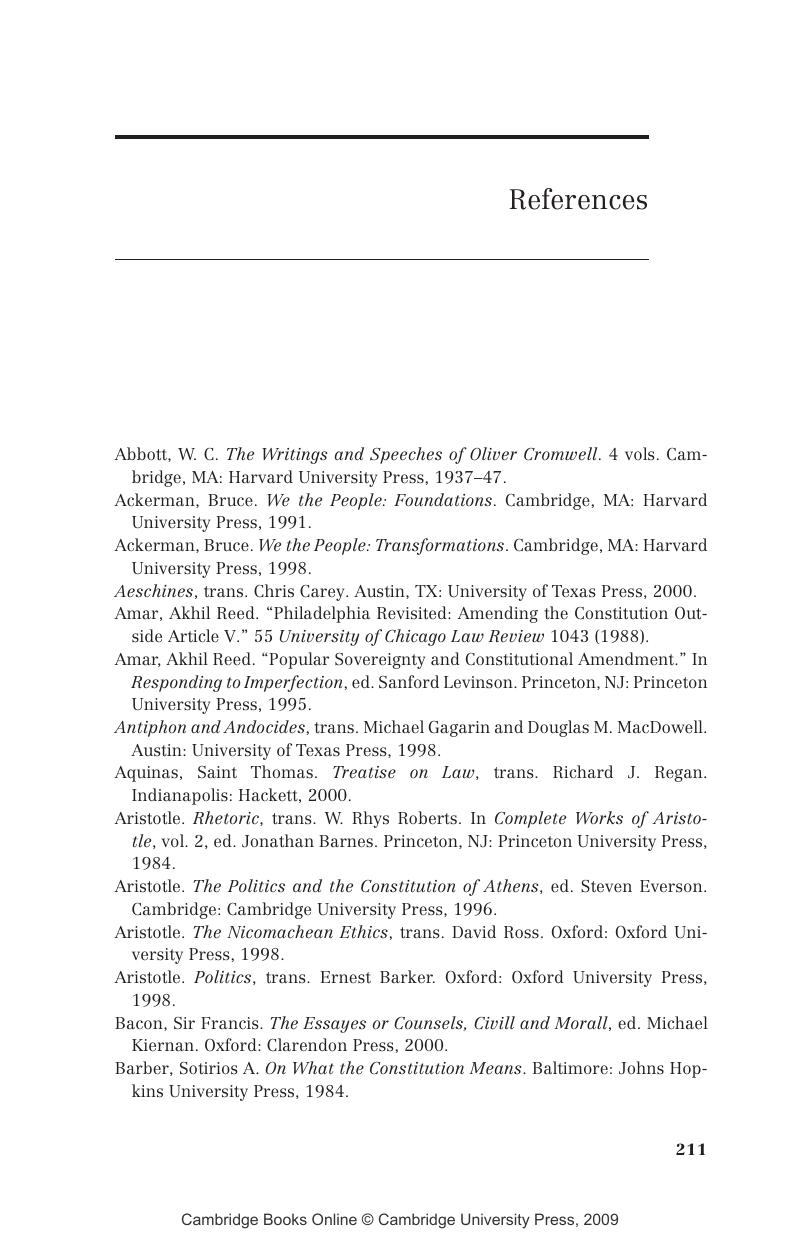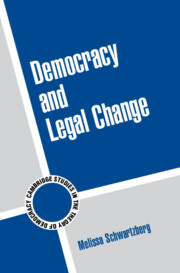Book contents
- Frontmatter
- Contents
- Acknowledgments
- 1 Introduction: Explaining Legal Change and Entrenchment
- 2 Innovation and Democracy: Legal Change in Ancient Athens
- 3 Legislation and Law Reform in Seventeenth-Century England
- 4 Fallibility and Foundations in the U.S. Constitution
- 5 Protecting Democracy and Dignity in Postwar Germany
- 6 Conclusion: Defending Democracy Against Entrenchment
- References
- Index
- References
References
Published online by Cambridge University Press: 24 July 2009
- Frontmatter
- Contents
- Acknowledgments
- 1 Introduction: Explaining Legal Change and Entrenchment
- 2 Innovation and Democracy: Legal Change in Ancient Athens
- 3 Legislation and Law Reform in Seventeenth-Century England
- 4 Fallibility and Foundations in the U.S. Constitution
- 5 Protecting Democracy and Dignity in Postwar Germany
- 6 Conclusion: Defending Democracy Against Entrenchment
- References
- Index
- References
Summary

- Type
- Chapter
- Information
- Democracy and Legal Change , pp. 211 - 224Publisher: Cambridge University PressPrint publication year: 2007

